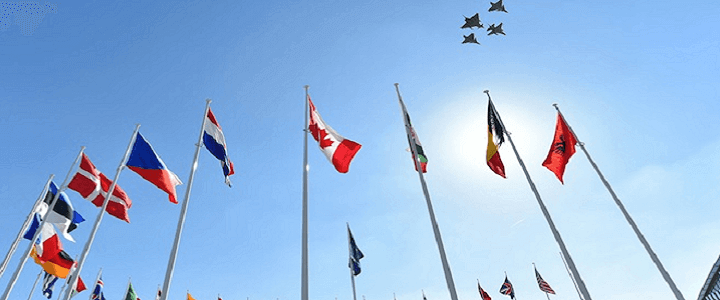I’ve been happy for the last year and a half to give President Donald Trump credit where it is due, and to criticize him where warranted. When it comes to our NATO allies, I cannot figure out what the president is thinking.
The North Atlantic Treaty Organization is one of, if not the most important force for freedom and self-determination on the planet. Since its inception in 1949, NATO has stood strong against the forces first of international communism, and now Islamism. The 29 member countries are a classic case of the whole being greater than the sum of its parts.
But the president seems not to understand how alliances work. Today, the New York Times reports he has sent “sharply worded letters” to Belgium, Canada, Germany, and Norway, scolding them or not spending two percent of their gross domestic product on defense. To Trump, this is tantamount to not paying their NATO membership fees.
He is wrong, and he’s doing grave damage to U.S, national security by taking this hard line.
Spheres of influence
When the leaders of the allied powers — Franklin Roosevelt, Winston Churchill, and Josef Stalin — met in Yalta, they essentially divided Europe into spheres of influence. Occupied Germany was divided into four sectors: American, British, French, and Soviet. The capital of Berlin, in the center of the Soviet sector, was itself divided into four sectors.
At a 1946 speech in Fulton, Mo., Churchill, the United Kingdom’s prime minister throughout much of the war, dubbed the dividing line between the Soviet-dominated East and the free West as the “Iron Curtain.” Soon enough, his metaphor would prove to be almost a literal truth.
In 1948, in an effort to rebuild a Europe reduced to rubble by the second major war in half a century, the U.S. passed the “Marshall Plan,” a program of economic aid named for Secretary of State George C. Marshall, who had served as the Army chief of staff during the war. Under the Marshall Plan, any country that pledged free and open markets could receive U.S. aid to rebuild.
This did not go over well in the Soviet sphere of influence. Nor did the formation of the Deutschmark, a new currency for the non-Soviet sectors of Germany. In reaction, the Soviets blocked Allied ground access to Berlin in 1948. This in turn led to the Berlin Airlift, where the West flew in more cargo than had previously come by rail.
The Soviets clearly were not going to budge, and western Europe, along with Canada and the U.S., formed NATO a year later as a common defense against the threat of Soviet expansion.
NATO’s ultimate victory
Depending on your age, this is either ancient or recent history. A 30-year-old today was born in 1988, the last year of Ronald Reagan’s presidency and a year before the Berlin Wall fell. Those of us in Generation X were in college at the time. When the youth of Berlin tore down the wall separating East and West Berlin, I was already a second lieutenant at Fort Knox.
Today, NATO’s membership list is itself a testament to the power of the alliance. Of the 29 member countries, 10 of them — Albania, Bulgaria, the Czech Republic and Slovakia (formerly joined into Czechoslovakia), Estonia, Hungary, Latvia, Lithuania, Poland, and Romania — were part of the Warsaw Pact. (Estonia, Latvia and Lithuania were part of the Soviet Union itself). Croatia, Montenegro, and Slovenia were part of the nonaligned but still communist Yugoslavia.
This brief rehash of post-World War II history should be all the proof anyone needs of the efficacy of the alliance. Article 5 of the North Atlantic Treaty, which states that an attack on one member is an attack on all the members, has been invoked only once: after the terrorist attacks of September 11, 2001.
Regardless of whether they’ve spent two percent of their GDP on defense or not, our NATO allies have been there when we needed them. During my deployment to Bosnia 20 years ago, a Dutch officer confided to me that he felt the entire Netherlands defense strategy hinged on volunteering for the tough NATO missions under the theory that if they were eager partners when necessary, the rest of the alliance would be there for them should they need it.
But the president’s rash and impolitic words are threatening the very alliance that has kept the peace in Europe since 1945. Whatever his rationale for verbally attacking our allies over their perceived lack of dedication to our mutual defense, he is simply wrong.
In the face of a resurgent Russia, the North Atlantic Treaty is as relevant as it’s ever been. The president would be well advised to work to preserve it, not tear it apart from within.



